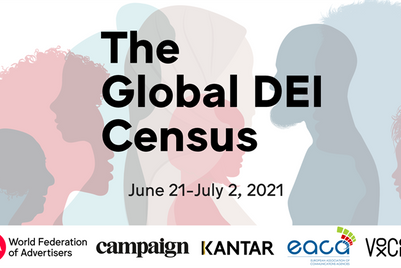
World Federation of Advertisers chief executive Stephan Loerke has said the ad industry faces a reckoning over the way its “wealth has been organised and operated over the past 30 years”.
In an interview with Campaign, he said the industry was being forced to look at its business links with Russian oligarchs who may indirectly fuel the Putin regime, as well as state media.
He added that brands “must not unintentionally, [fund or support] the regime” of Vladimir Putin.
Loerke broke down global reaction to Russia’s invasion of Ukraine on 24 February into three phases.
The first pushed companies to cut “direct business links” with the Putin regime. He cited BP as an example – the British oil and gas company had a 20% stake in Rosneft, the Russian state-owned energy company, that it has now withdrawn. Its exit was swiftly replicated by Shell.
Brands such as Apple, Adidas, Volkswagen and Ikea have also suspended sales in the country.
The second phase, which some brands and advertisers are currently in, is considering the withdrawal of media spend on private channels owned by Russian oligarchs.
Here, he named Gazprom-Media as an example, founded by former Russian prime minister Viktor Chernomyrdin and now led by Alexey Miller. The company maintains a controlling interest in the national channels.
Loerke said: “From my conversations [advertisers are saying]: we are not working with oligarchs, but how can we as brand owners justify spending money on private TV channels that are linked to the Putin regime?”
By spending money on channels owned by oligarchs, Loerke said that media buyers and planners “indirectly fuel the Putin regime”. Conversations about moving away from these channels, he said, are happening among the top 30 ad spenders in the world.
Everyone is in “uncharted territory”, he said and he predicted that most advertisers were ultimately heading towards the question of “to what extent can you justify operating a business in Russia?”
That third phase is now under way, with certain brands suspending some, or all, of their business activity in Russia, including McDonald's, Coca-Cola, and Starbucks.
But as for the WFA’s own response, the network body and its offshoot the Global Alliance for Responsible Media (GARM) will be implementing a new brand safety standard for disinformation and generally assisting brands in understanding the situation in Ukraine and Russia.
GARM’s current brand safety floor and suitability framework identifies 11 areas of harmful content, common definitions for how it can be harmful, and where ads should not be appearing.
A new framework focusing on disinformation is now planned to be released by the end of March and the WFA will also be a co-signatory on the European Commission's code of practice, which will be released at the end of March to hold the industry to transparency and accountability standards.
Ultimately though, Loerke said the industry should “put marketing into perspective here”, and focus on the people in danger, not the profits of an industry.
“I think one needs to be very humble in terms of how we position marketing and brands in the current context. The focus is on the people.”
(This article first appeared on CampaignLive.com)


.jpg&h=334&w=500&q=100&v=20250320&c=1)
.jpg&h=334&w=500&q=100&v=20250320&c=1)



.jpg&h=334&w=500&q=100&v=20250320&c=1)



.jpg&h=334&w=500&q=100&v=20250320&c=1)


.jpg&h=268&w=401&q=100&v=20250320&c=1)





